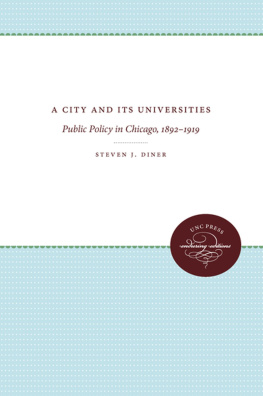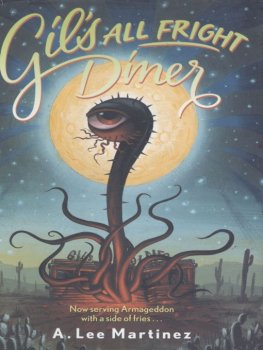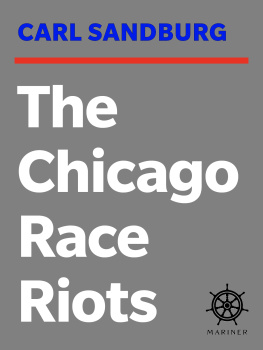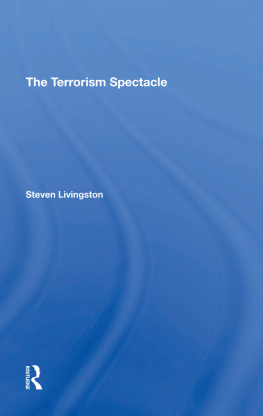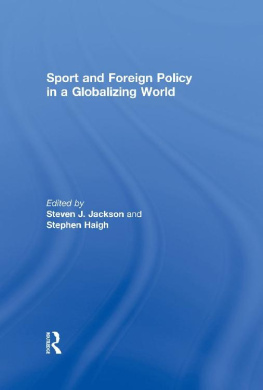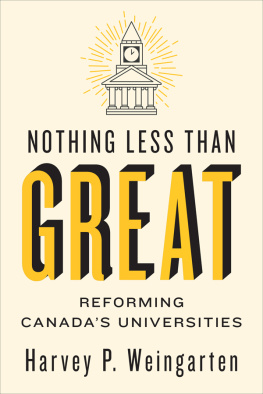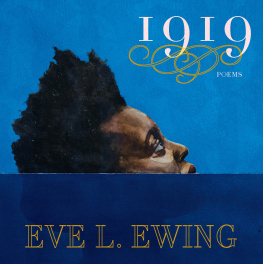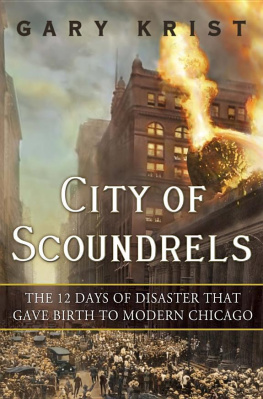1980 The University of North Carolina Press
All rights reserved
Manufactured in the United States of America
ISBN 0-8078-1409-1
Library of Congress Catalog Card Number 79-16834
Library of Congress Cataloging in Publication Data
Diner, Steven J 1944
A city and its universities.
Bibliography: p.
Includes index.
1. Community and collegeIllinoisChicago.
2. Universities and collegesIllinoisChicago.
3. Social reformersIllinoisChicago. 4. Chicago Social policy. I. Title.
LC238.3.C46D56 378.I030977311 79-16834
ISBN 0-8078-1409-1
From Chicago in CHICAGO POEMS by Carl Sandburg, copyright 1916 by Holt, Rinehart and Winston, Inc.; copyright 1944 by Carl Sandburg. Reprinted by permission of Harcourt Brace Jovanovich, Inc.
Acknowledgments
It is always a pleasure to acknowledge scholarly debts. For their critical reading of the manuscript, I am deeply grateful to Richard Angelo, Burton J. Bledstein, Ronald M. Johnson, Barry D. Karl, Richard King, Rachel Marks, and George Stocking. I wish to express special thanks to Morris Janowitz, for both his scholarly criticism and his continuing encouragement.
The archivists of the Chicago Historical Society and especially of the Department of Special Collections of the University of Chicago Libraries assisted me above and beyond the call of duty on innumerable occasions. A grant from the College-Supported Research Committee of the Federal City College (now the University of the District of Columbia) enabled me to be free from teaching responsibilities to devote an entire summer to this project.
This book began as a doctoral dissertation at the University of Chicago under the direction of Arthur Mann. There is no way that I can adequately express my appreciation to him. His extraordinary skill as an editor and teacher of the historians craft, his constant encouragement and support, and his friendship made difficult tasks much easier.
Hasia Diner has lived with Chicago professors longer than either of us cares to admit. It is a delight to acknowledge her scholarly assistance at every stage of this project and her loving support.
A City and Its Universities
1. The New Professors and Public Policy
FEW AMERICAN INSTITUTIONS have been the subject of as much controversy in the last two decades as the university. It has been attacked by some as a bulwark of the status quo and by others as an agent of revolutionary social change. Its faculty has been accused alternately of irrelevance to social problems and of corruption because of its involvement in practical affairs. Underneath the controversy is a common recognition that the American university is of paramount importance both to the maintenance of social order and to the achievement of social change.
American language still contains terms like ivory tower and academic to describe the universitys supposed qualities of aloofness and impracticality, but these words no longer reflect the realities of higher education. The stereotypes of the absent-minded professor befuddled by practical matters may die hard, but one need only look at the recent political appointments of governors, mayors, and the president to confirm that prominence in academia today makes one as much a candidate for high office as success in industry, public administration, or the practice of law.
The political influence of academicians like Henry Kissinger, Daniel Moynihan, Arthur Schlesinger, Jr., Edward H. Levi, and so many others can obscure the more profound influence of the academic enterprise on contemporary American society. Through the sum total of their scholarly research and their teaching, professors perform a task that is essential to the maintenance of modern society. Our government bureaucracies, public school systems, corporations, religious denominations, charitable foundations, and other large-scale institutions depend upon expert knowledge, and on functionaries who know how to perform particular tasks within a large system. We need people who can compile and manipulate statistical data to help deliver extensive health, housing, and welfare services. Local, state, and federal governments rely upon people trained in public administration and accounting to manage their bureaucracies and develop their budgets. In charitable foundations large staffs determine how money should be spent and assess the results of money expended. Our criminal justice system employs trained social workers, probation officers, and psychologists. For better or for worse, most public functions today depend upon these kinds of large organizations and institutions, and they in turn rely upon universities.
Indeed, bureaucracy is so much a part of everyday life that it is hard to imagine a time (not very long ago) when our society left many activities to families and informal groups. Before the 1930s, whatever government did about housing, public health, or social welfare was done by state and local agencies that in retrospect seem so tiny as to appear insignificant. Moreover, it was not so much government that concerned itself with these matters as it was political machines in city wards, religious groups, ethnic associations, or small groups of private individuals. More often than not, people relied only upon themselves and their families for their survival and well-being.
Several historians recently have depicted late-nineteenth- and early-twentieth-century America as undergoing a process of bureaucratic rationalization resulting in an organizational society. Influenced by sociological theories of modernization, they have argued that the decentralized and informal social organization of earlier American history yielded to a nationally integrated, centralized, and bureaucratic social organization during this period, the inevitable accompaniment of industrialization and the creation of a unified national economy. This interest in the evolution of a nationally integrated social order has stimulated studies of the rise of nationally oriented professions and also several important reassessments of the personnel, ideologies, and motives of the reform movements of the progressive era. The two phenomena are closely linked.
Professional scholars and modern universities arose through the complex social transformations of American society in the late nineteenth century. The American university and the academic professions first appeared in the 1870s and more or less assumed their present form by the time of Americas entry into World War I. Until the 1870s higher education in the United States consisted of small, denominational colleges that inculcated mental discipline and morality in students through a fixed curriculum of classical languages and philosophy. Professors were typically ministers, and as members of faculties that numbered four or five, they taught many different subjects within the standard curriculum. Professional schools of medicine, law, ministry, and technology did not require college education for admission and were usually independent of these liberal arts colleges. The advancement of knowledge was a private endeavor of leisured individuals. People with the means and inclinations pursued scholarly or scientific interests, but they rarely belonged to a college or professional school faculty.
In the half century following the Civil War, both the pursuit of knowledge and the higher education of young people were captured and vastly expanded by a new type, the professional scholar, operating primarily out of the new American university. The new academic professionals of the late nineteenth century, unlike the older college teachers, viewed knowledge as ever expanding and engaged actively in the production of new knowledge through research.

